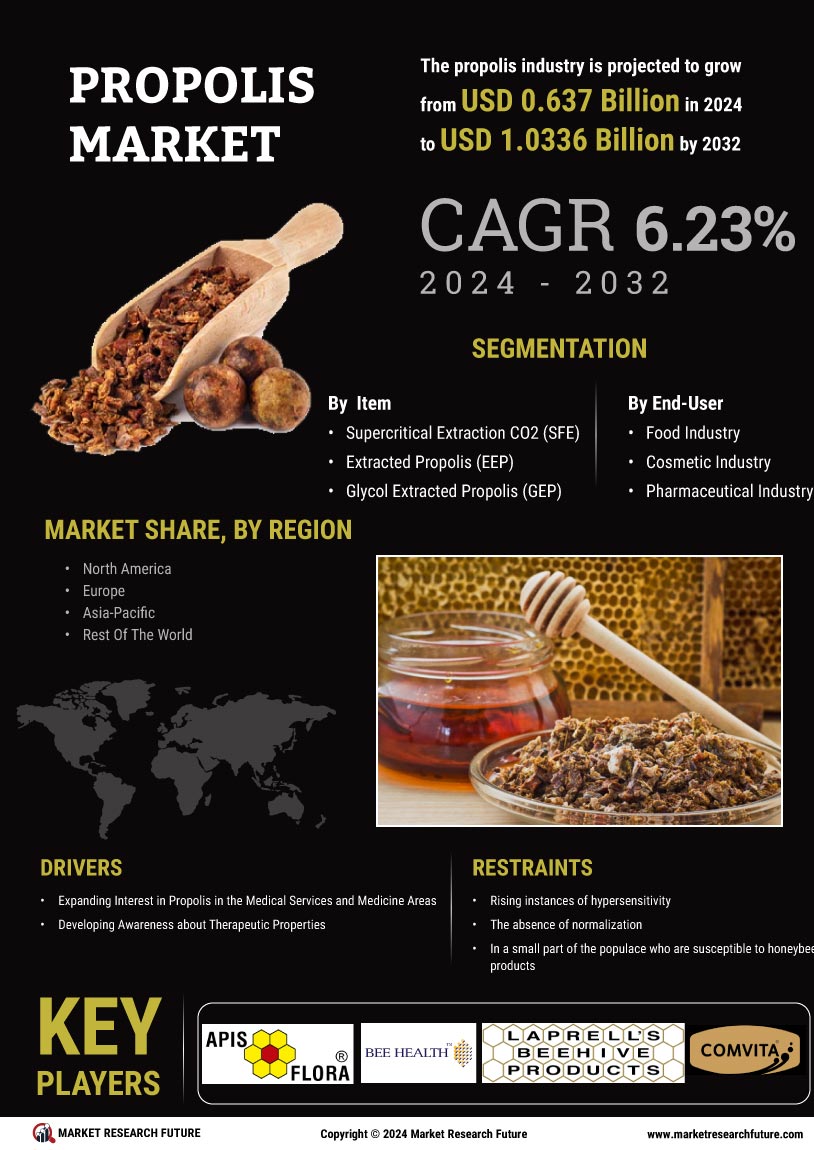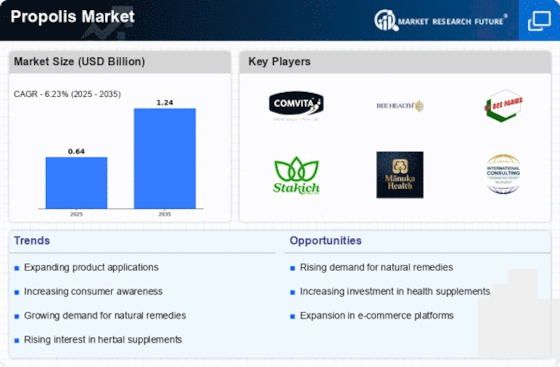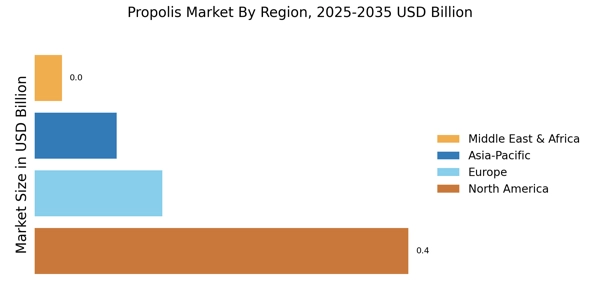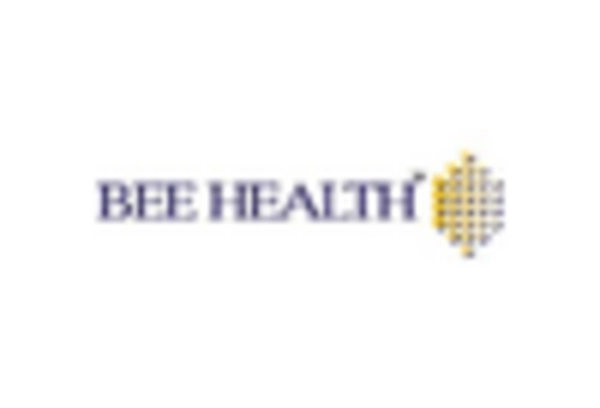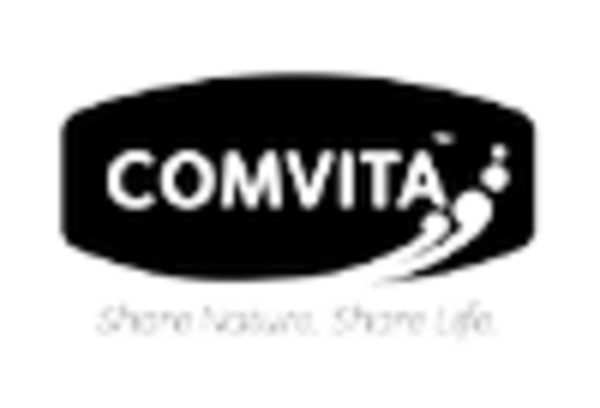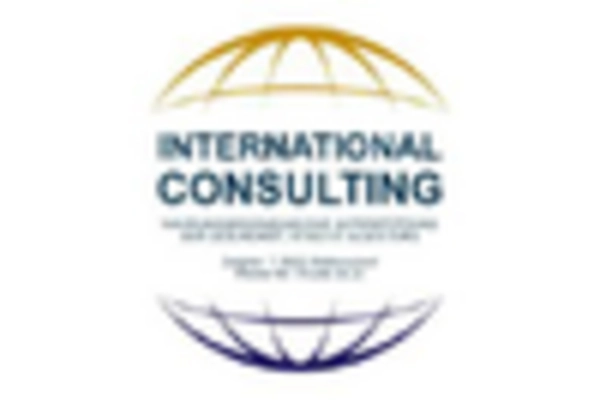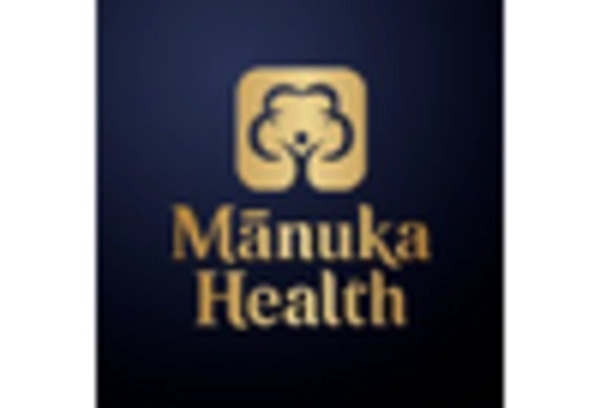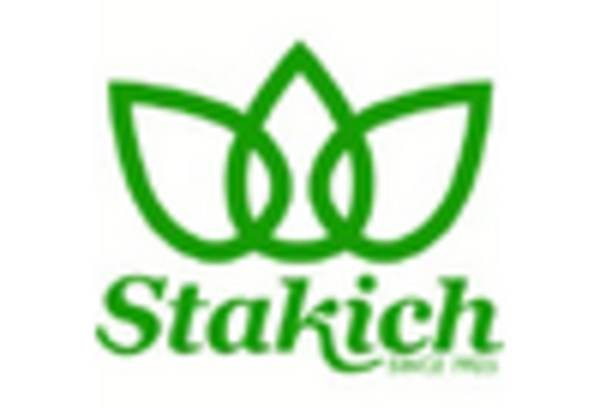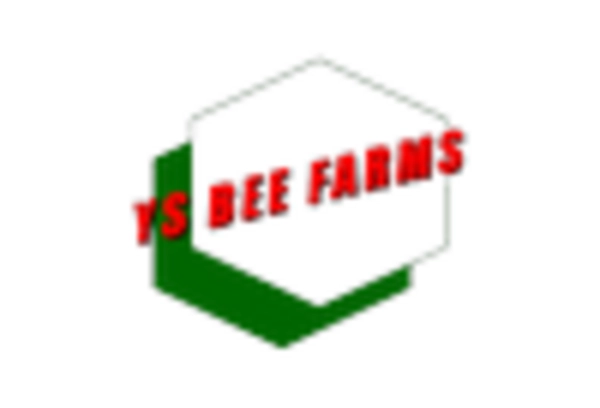Growth in Natural Cosmetics
The Propolis Market is experiencing growth driven by the increasing incorporation of propolis in natural cosmetics. As consumers become more aware of the ingredients in their personal care products, there is a marked shift towards natural and organic formulations. Propolis Market, with its beneficial properties, is being utilized in skincare, haircare, and other cosmetic products. The natural cosmetics market has been expanding at a rate of around 12% per year, with propolis emerging as a favored ingredient due to its soothing and healing attributes. This trend reflects a broader consumer preference for products that are not only effective but also environmentally friendly. The growth in natural cosmetics is a pivotal driver for the Propolis Market, as it aligns with the increasing demand for clean beauty products.
Expansion of Dietary Supplements
The Propolis Market is witnessing a robust expansion in the dietary supplements sector. Propolis is increasingly incorporated into various supplement formulations due to its reputed health benefits. The dietary supplements market has shown a compound annual growth rate of around 10% in recent years, with propolis products contributing to this growth. Consumers are gravitating towards supplements that offer natural ingredients, and propolis fits this demand perfectly. The versatility of propolis allows it to be marketed in various forms, including capsules, powders, and tinctures, catering to diverse consumer preferences. This expansion in dietary supplements not only enhances the visibility of propolis but also solidifies its position as a key ingredient in the Propolis Market, appealing to health-conscious individuals seeking natural alternatives.
Emergence of E-commerce Platforms
The Propolis Market is significantly influenced by the emergence of e-commerce platforms, which have transformed the way consumers access propolis products. The convenience of online shopping has led to a surge in sales of propolis-based items, as consumers can easily compare products and read reviews. E-commerce sales in the health and wellness sector have been growing at an impressive rate of approximately 20% annually, with propolis products benefiting from this trend. This shift not only broadens the market reach for propolis but also allows for greater consumer education through online resources. As e-commerce continues to expand, the Propolis Market is likely to see increased accessibility and visibility, fostering further growth in consumer adoption.
Rising Popularity in Functional Foods
The Propolis Market is benefiting from the rising popularity of functional foods, which are foods enhanced with additional health benefits. Propolis Market is increasingly being integrated into food products such as beverages, snacks, and health bars, appealing to consumers looking for nutritious options. The functional foods market has been projected to grow at a rate of approximately 8% annually, with propolis products gaining traction due to their perceived health advantages. This trend is indicative of a broader consumer shift towards foods that not only satisfy hunger but also contribute to health and wellness. As the demand for functional foods continues to rise, the Propolis Market is likely to see increased innovation and product development, further solidifying its role in the health food sector.
Increasing Awareness of Health Benefits
The Propolis Market is experiencing a notable surge in consumer awareness regarding the health benefits associated with propolis. This natural resin, produced by bees, is recognized for its antimicrobial, anti-inflammatory, and antioxidant properties. As consumers become more health-conscious, they are increasingly seeking natural remedies and supplements, which propolis offers. Reports indicate that the demand for propolis-based products has grown by approximately 15% annually, reflecting a shift towards holistic health solutions. This trend is likely to continue as educational campaigns and research highlight the efficacy of propolis in supporting immune health and overall well-being. Consequently, the increasing awareness of health benefits is a significant driver for the Propolis Market, as it aligns with the broader movement towards natural and organic products.
